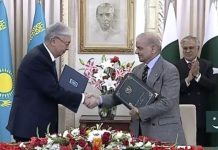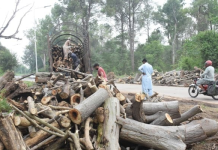LAHORE, JAN 26 (DNA) — As the Economic Coordination Committee (ECC) of the federal cabinet has decided to approve upward revision in gas tariff for the industry by upto 26pc to generate Rs847b during current fiscal year the Federation of Pakistan Chambers of Commerce & Industry’s Businessmen Panel (BMP) has observed that the repeated increase in the gas and electricity prices to an un¬bearable level has left the trade and industry uncompetitive.
FPCCI former president and BMP Chairman Mian Anjum Nisar said that the gas tariff hike has threatened the industrial sector, besides increasing unemployment. The Economic Coordination Committee (ECC) on Saturday decided to approve upward revision in gas tariff for industry captive power plants from 3000 rupees per MMBtu to 3500rupees per MMBtu to ensure required revenue for the gas sector during Fiscal-year2024-25.
The Economic Coordination Committee also instructed the Petroleum Division to take necessary measures for the imposition of a grid transition levy on the captive power plants to enhance the energy sector efficiency. The committee met to discuss a summary submitted by the Petroleum Division for an upward revision of the indigenous gas tariff for industry (captive power) as well as non-protected domestic slabs.
The Oil & Gas Regulatory Authority (Ogra) requested the federal government to increase gas rates by up to 26 percent to generate about Rs. 847.33 billion during the current fiscal year. Under the new tariff structure, the average gas price has been set at Rs. 1,762.51 per MMBTU for Sui Southern Gas Company (SSGC), and Rs1,778.35 per MMBTU for Sui Northern Gas Pipelines Limited (SNGPL).
Mian Anjum Nisar said that the every government had poor economic policies that unleashed the free fall of rupee against the dollar, ensuing in in¬put cost escalation to pull down the manufacturing growth. He warned that the contin¬ued escalation of gas prices could result in the closure of numerous industries, amplify¬ing unemployment rates and diminishing Pakistan’s export capabilities, appealing to the government to reverse this de¬cision promptly and establish a fixed gas price of Rs1,800 per mmbtu for industries.
Emphasising the need for the government to explore and provide affordable energy alternatives for the industry, he stressed that such measures are crucial for ensuring the competitiveness of Pakistani products in the global market. As the industrial sector grapples with the ramifications of the gas price hike, the BMP leader’s stance advocates for the pres¬ervation of industrial stability and the prevention of potential economic setbacks for Pakistan.
The chairman condemned the recent increase in gas tariff as approved by the Economic Coordination Committee and demanded the government to take back the decision of hike in gas tariff in the larger interest of national economy and to save the industries from collapse. He warned that in case the decision is not withdrawn the industries will close down, resulting in decline in exports and mass unemployment.
In an appeal, he said that the business community was given assurance for 9 cents per KWh electricity tariff. The assurance brought a sigh of relief and hope for the business community that the new tariff will help in reduction of production cost and they will be able to continue production unabated and deliver export orders on time. However, contrary to the assurance given, POL, electricity and gas tariff are being increased constantly by the government. He said that currently, the national economy is passing through se¬vere crisis.
To run an industry is no more a profitable business. He questioned the caretaker prime minister as to how econ¬omy of the country can be stabilised and strengthened in the absence of industrial and busi¬ness activities? Unfortunately, the government has taken no step to provide competitive environment to industries, lower the cost of production and reignite the engine of national economy, which has left the industrial community in despair, he remarked.
He vehemently rejected the surge in gas prices, asserting that this decision poses a severe threat to the industrial sector, potentially leading to increased unemployment. He expressed concern over the already elevated production costs in the region, rendering industri¬alists less competitive compared to their counterparts in neighboring countries.
Showing their profound concerns many industries, they claimed to have already stopped their produc¬tion in the country with several others fearing a closure because of the unviable trade, which may also pulled the country’s exports further down. The rulers have raised gas tariffs to the high¬est ever levels by 118 percent from 2023 and added on with a 40 percent cost of RLNG.
This move overall gave a steep rise of 191 percent to the gas prices to the historic levels, he added. The exports industry is also compelled to pay the exorbitant gas price, which is tagged with the cross subsidy that the fertiliser, feedstock, domestic consumers and power genera¬tion sector enjoy, he pointed. —DNA

















